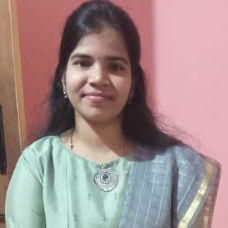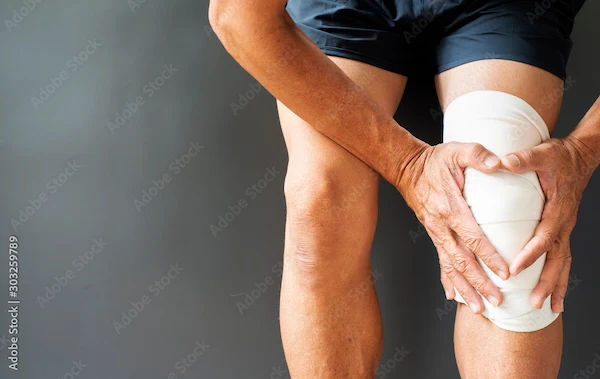Is Spinal Tap Painful?
Wondering if a spinal tap is painful? Learn what to expect before, during, and after the procedure, how discomfort is managed, and tips for a smooth recovery.

Written by Dr. J T Hema Pratima
Reviewed by Dr. Shaik Abdul Kalam MD (Physician)
Last updated on 6th Aug, 2025

If your doctor has recommended a spinal tap, also known as a lumbar puncture, you might be feeling nervous, especially about whether it will be painful. The good news is that while the idea of a needle near your spine can sound scary, the procedure is usually less painful than people expect. Let’s break down what a spinal tap involves, how uncomfortable it might be, and how you can prepare for it.
What Is a Spinal Tap?
A spinal tap is a medical procedure where a thin needle is inserted into the lower back to collect cerebrospinal fluid (CSF)—the fluid that surrounds your brain and spinal cord. This fluid helps doctors diagnose conditions like:
Infections (meningitis, encephalitis)
Bleeding around the brain
Multiple sclerosis (MS)
Certain cancers affecting the nervous system
High or low CSF pressure disorders
Does a Spinal Tap Hurt?
The level of discomfort varies from person to person, but most patients describe it as mild to moderate rather than severely painful. Here’s what you can expect:
1. Before the Procedure – Numbing Helps!
Your doctor will apply a local anaesthetic to numb the skin and tissues in your lower back.
You may feel a quick sting or pinch from the numbing shot, but this discomfort lasts only a few seconds.
2. During the Procedure – Pressure, Not Sharp Pain
Once the area is numb, you’ll feel pressure as the needle is inserted, but not sharp pain.
Some people report a brief, dull ache when the needle reaches the spinal canal.
The actual fluid collection takes only a few minutes.
3. After the Procedure – Mild Soreness
You may have some tenderness or a slight headache afterwards, but this usually fades within a day or two.
Staying hydrated and lying flat for a few hours can help reduce discomfort.
What Makes a Spinal Tap More or Less Painful?
Several factors influence how much discomfort you might feel:
Your Anxiety Level – Being relaxed helps reduce muscle tension, making the procedure smoother.
The Doctor’s Experience – A skilled specialist can perform the tap quickly and with minimal discomfort.
Your Positioning – Curling into a fetal position (chin to chest, knees bent) helps open the spinal space, making insertion easier.
Tips to Make the Procedure Easier
1. Stay Calm – Deep breathing or listening to music can help you relax.
2. Ask for Numbing Cream – Some clinics offer a topical anaesthetic to reduce the initial needle pinch.
3. Stay Still – Movement can make the process longer or slightly more uncomfortable.
4. Hydrate Well Beforehand – This helps with fluid collection and may reduce post-tap headaches.
Consult Top Specialist
Possible Side Effects (And How to Manage Them)
While spinal taps are generally safe, some people experience:
Headache – The most common side effect, usually relieved by lying down, drinking fluids, and caffeine (if allowed).
Back Discomfort – A warm compress or over-the-counter pain relievers (like acetaminophen) can help.
Bleeding or Infection (Rare) – Follow your doctor’s aftercare instructions to minimise risks.
When to Seek Medical Help After a Spinal Tap
Call your doctor if you experience:
Severe headache that doesn’t improve with lying down
Fever or signs of infection (redness, swelling at the puncture site)
Numbness or weakness in your legs
Conclusion
A spinal tap might sound intimidating, but it’s a routine and well-tolerated procedure that provides crucial health information. Most people find it much less painful than they expected, especially with proper numbing and relaxation techniques.
If your doctor has recommended a spinal tap, don’t hesitate to ask questions—understanding the process can ease your worries. And if you need expert care, Apollo 24|7 offers experienced specialists who can guide you through the procedure comfortably.
Consult Top Specialist
Consult Top Specialist
Dr. Gaddam Manoj
General Practitioner
1 Years • MBBS
Hyderabad
Aaradhya clinic, Hyderabad

Dr. Mainak Baksi
General Practitioner
13 Years • MBBS , MD (MPH)
Howrah
Mainak Baksi Clinic, Howrah
(50+ Patients)
Dr. Sahana B
General Practitioner
3 Years • MBBS
Koppal
Khushi multi-speciality hospital, Koppal

Dr Suseela
General Physician
5 Years • MBBS
Bengaluru
Apollo Medical Center, Marathahalli, Bengaluru

Dr. Rajib Ghose
General Practitioner
25 Years • MBBS
East Midnapore
VIVEKANANDA SEBA SADAN, East Midnapore


